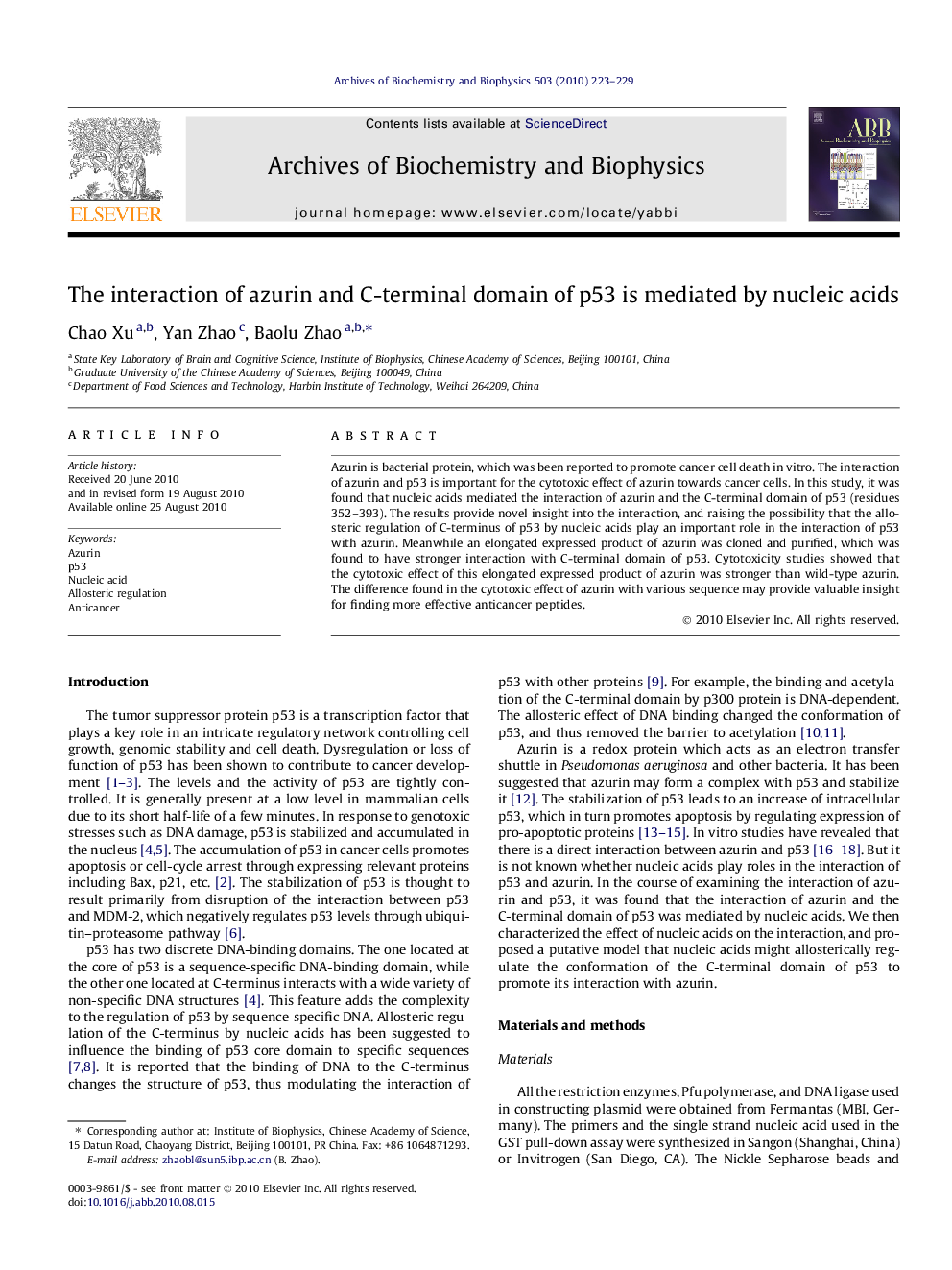| Article ID | Journal | Published Year | Pages | File Type |
|---|---|---|---|---|
| 1925908 | Archives of Biochemistry and Biophysics | 2010 | 7 Pages |
Azurin is bacterial protein, which was been reported to promote cancer cell death in vitro. The interaction of azurin and p53 is important for the cytotoxic effect of azurin towards cancer cells. In this study, it was found that nucleic acids mediated the interaction of azurin and the C-terminal domain of p53 (residues 352–393). The results provide novel insight into the interaction, and raising the possibility that the allosteric regulation of C-terminus of p53 by nucleic acids play an important role in the interaction of p53 with azurin. Meanwhile an elongated expressed product of azurin was cloned and purified, which was found to have stronger interaction with C-terminal domain of p53. Cytotoxicity studies showed that the cytotoxic effect of this elongated expressed product of azurin was stronger than wild-type azurin. The difference found in the cytotoxic effect of azurin with various sequence may provide valuable insight for finding more effective anticancer peptides.
Research highlights► Nucleic acids mediated the interaction of azurin and the C-terminal domain of p53 (residues 352-393). ► The allosteric regulation of C-terminus of p53 by nucleic acids play an important role in the interaction. ► An elongated expressed product of azurin was cloned and purified. ► The elongated expression may provide valuable insight for finding more effective anticancer peptides.
